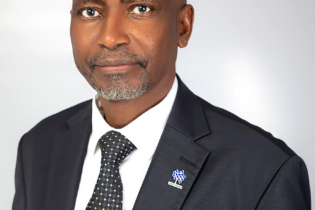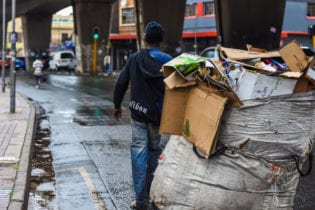Amidst mounting despair in Johannesburg due to an escalating water crisis, a high-level coalition has emerged to tackle the pressing issue, with civil society taking the lead in addressing critical areas of municipal dysfunction.
Water shortages have become increasingly routine across the metro, with some areas facing complete stoppages lasting for months. A recent high-level meeting, initiated by WaterCAN, an Organisation Undoing Tax Abuse (Outa) initiative, along with other relevant organizations, engaged the Department of Water and Sanitation, Rand Water, and Johannesburg Water. Notably, the City of Johannesburg was absent, despite being invited to this crucial gathering. Dr. Ferial Adam, executive manager of WaterCAN, emphasized the need for constructive engagement, stating, “This is a constructive engagement to find solutions together as we all have a role to play and we need to find that role.” During the meeting, the Department of Water and Sanitation, represented by director general Sean Phillips, delivered a presentation with the tagline, ‘Water is Life, Sanitation is Dignity.’ The irony of this message was not lost on some attendees. Rand Water, the bulk supplier of water to Johannesburg Water, conveyed that there is no ‘quick-fix’ solution for those suffering from erratic or non-supply of water anytime soon. In response to the crisis, this journalist asked if any entity was willing to apologize to residents, particularly those burdened by the lack of water supply. Logan Munsamy, operations manager of Johannesburg Water, responded, “We are sorry, and we know people are suffering. We are working as hard and fast as we can to improve the situation.”The dire situation has led residents to form a Water Crisis Committee (WCC) to engage with Mayor Kabelo Gwamanda. Despite receiving a memorandum of demands after a peaceful protest at council, the mayor failed to meet with the group within the agreed 14-day period. Farrah Domingo, spokesperson for the WCC, expressed frustration, stating, “We are angered by this deliberate dragging of feet by the Office of the Mayor. It seems that our serious water issues have been relegated to a non-issue by the bureaucracy. We have decided to intensify our protests in the face of an uncaring city.”
Executive director Nishan Bolton of the Ahmed Kathrada Foundation called for participants to share their experiences with water services. Domingo described her struggles, saying, “Having to care for my elderly and unwell mother without water for months and months has become unbearable.” With a common understanding established, the hope is that the coalition, along with the involved entities, will collaborate to alleviate the frustrations and pressures caused by water scarcity in the city. This includes commitments to improving communication about shortages and widespread education campaigns to inform residents about the water network and its challenges. Rand Water’s chief operating officer, Mahlomola Mehlo, explained the intricate water network between the three organizations, emphasizing the need for careful management to ensure capacity during adverse events. Dr. Ferial Adam concluded the meeting by stating, “This is a starting point; now the work begins. We need to draw up clear plans and actions and use this forum to hold government accountable.”






